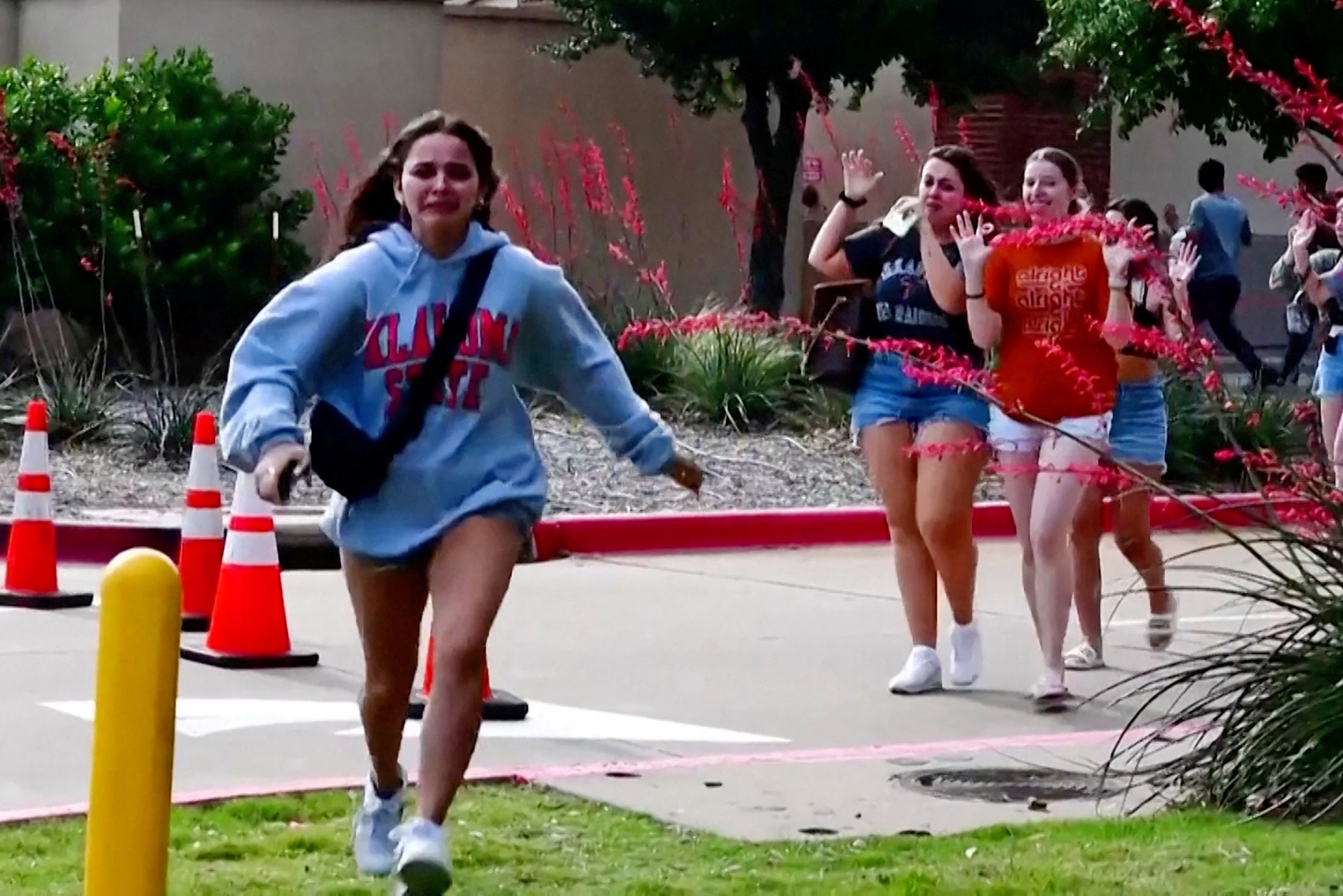Gruesome video footage won’t make gun control happen
We don’t need more explicit images. We need more democracy.


A gunman opened fire at a mall in Allen, Texas, killing eight, including children, on Saturday. Grim video clips of the shooting quickly circulated online, showing the bodies of victims. Journalist Brian Stelter tweeted that the video was “one of the absolute worst I have ever seen.”
News organizations often don’t release explicit footage of mass shootings out of respect for victims and because the images can be traumatizing. But the stark video from Allen, Texas, led many commenters to wonder whether that policy of discretion was a mistake.
“It’s a horrific video but at this point I have to wonder if the public need to start seeing these things,” Jason Abbruzzese, an editor at NBC News Digital, wrote on Twitter.
Princeton history professor Kevin Kruse suggested there might be a parallel with Mamie Till’s decision to publish photos of her 14-year-old son Emmett after the latter was murdered in a racist lyching in Mississippi in 1955. On Substack, journalist Steven Beschloss pointed to iconic photos from the Vietnam war, such as the murder of Viet Cong Captain Nguyễn Văn Lém by South Vietnamese brigadier general Nguyễn Ngọc Loan. Eddie Adams won the Pulitzer Prize for the image, which is widely thought to have helped shift US sentiment against the war.
Unfortunately, images of violence, no matter how ugly, are unlikely to move the gun debate. The public is already aware of the consequences of our current gun policies, and changes to those policies are quite popular. The problem is that there is a committed minority who see any amount of death and misery as a reasonable trade-off for “liberty”—defined as the right to own infinite guns without restriction.
Journalism tends to have its most powerful impact when it reveals information that was previously unknown, or little known, or that people were deliberately trying not to think about. One powerful example is the photographic evidence of prisoner abuse and torture by US government interrogators at Abu Ghraib prison in Iraq. CBS News released these images in April 2004. The photos helped undermine American public support for what had been an overwhelmingly popular war. The reaction against the war helped lead to the election of Barack Obama in 2008 on an anti-Iraq War platform, and the American withdrawal in 2011.
The Abu Ghraib images were so powerful, again, because the abuses had been kept quiet by the US. In contrast, the United States public is very aware of the nightmare of gun violence, and especially of mass shootings.
The Sandy Hook Elementary School shooting in 2012, which left 28 dead, was intensively covered by the press; president Obama delivered an emotional, televised address in which he promised to do everything he could to end gun violence. Other mass shootings—the Pulse Nightclub in Orlando in 2016, the Uvalde elementary school shooting in 2022—also received blanket coverage.
These nightmarish events have led to changes in public opinion. Gallup’s polling shows that following Sandy Hook in 2012, there was a sharp increase in support for stricter gun laws, jumping from 44% support to 58% support. Those numbers have largely held in the years since. The public does not need to be persuaded to embrace stronger gun laws; people are aware that gun violence is out of control, and wants stronger restrictions on firearms.
The problem, then, isn’t an ignorant or recalcitrant public. The problem is that Republicans have decided that guns are central to their political identity. And that identity is more important to them than any amount of carnage.
Conservative actor Dean Cain summed up the Republican attitude in a tweet after the mall shooting.
“I prefer dangerous freedom over peaceful slavery,” he quipped on Twitter.
For Cain the deaths of those in Allen—or Uvalde, or Sandy Hook—are a small price to pay for lax gun laws. You need guns to fight for the liberty to own guns. Mass shootings are a fair tradeoff for the right to defy tyrants who want to end mass shootings. It’s a perfect loop of bad logic.
Cain’s not alone; Republicans like Kentucky representative Thomas Massie and Colorado representative Lauren Boebert pose with guns in Christmas card family photos. Guns are regularly displayed in Republican campaign ads. Guns, and fantasies of armed resistance to vaguely defined foes are central to the GOP’s messaging and the GOP’s sense of themselves as a party and a movement.
Again, the GOP gun cult is outnumbered. In a just democracy, we could simply outvote them. But the US system is strongly tilted in favor of Republicans and conservatives. In particular, the Senate has a powerful GOP bias. GOP bastions like Wyoming and the Dakotas, total population 2.2 million, have three times as many Senators as Democratic California, population 39 million.
Add in the filibuster, which requires a supermajority in the Senate to pass legislation, and the gun-happy GOP effectively has an unbreakable veto on gun control. It was a minor miracle that President Biden managed to shepherd a mild gun safety bill through Congress in 2022.
If evidence of the horrors of gun violence could end gun violence in the US, we would have ended gun violence a long time ago. We have a clear public consensus for change. But our government is paralyzed by a system that empowers the far right at the expense of everyone else. We don’t need more explicit images. We need more democracy. That’s a tough fight. But until we win it, people, including children, will continue to die.




